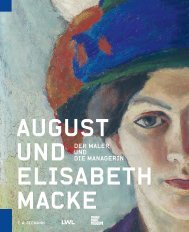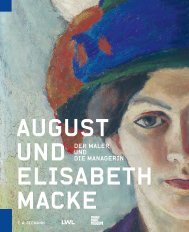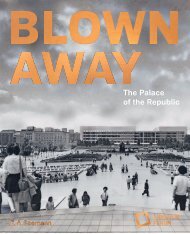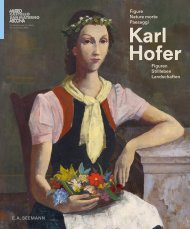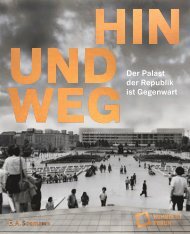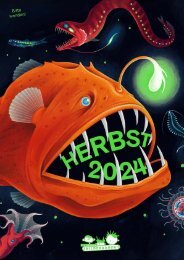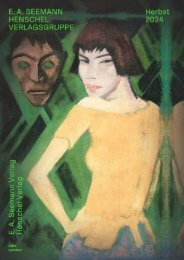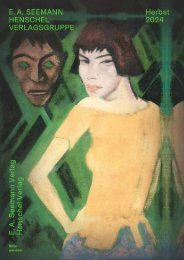Leseprobe "Gegenwärtig! 100 Jahre neue Musik - Die Donaueschinger Musiktage
Erfolgreiche ePaper selbst erstellen
Machen Sie aus Ihren PDF Publikationen ein blätterbares Flipbook mit unserer einzigartigen Google optimierten e-Paper Software.
Joanna Bailie<br />
The Place of<br />
New Music<br />
Instead of thinking about new music as a list of works, composers<br />
and performers, couldn’t we describe it as a series of places? What<br />
would happen if we referred to pieces by the situations in which we<br />
first heard them rather than by their titles and creators? In the end,<br />
music is just the coming together of sound reverberating in space<br />
with an individual listener, an utterly one-time experience consisting<br />
of co ordinates of time, place and the movement of air molecules.<br />
I suspect most composers wouldn’t like to think of their works in those<br />
terms, but I’m quite happy to assemble my own personal geography<br />
of premieres — a filtering of the world by new music experiences. For<br />
instance, I could talk about the cycle for choir and instruments, a favourite<br />
to this very day, that I was introduced to one afternoon in 1999<br />
via CD at a friend’s New York apartment, or the strangely theatrical<br />
piece I witnessed in 2014 at a venue in a small city in central Germany.<br />
There was, on that latter occasion, an atmosphere generated by<br />
the intensity of the work and its performance the likes of which I had<br />
never experienced before (»you had to be there«, as they say). Once<br />
even, I heard a piece for small ensemble, dwarfed by an event space<br />
the size of a cattle market. I sat there straining to hear over the ambient<br />
sound of more than one thousand new music festival-goers, the<br />
music’s odd and delicate beauty almost enhanced by the effort I was<br />
making to listen to it.<br />
Of course, the more experimentally oriented among us already understand<br />
the importance of situation to the perception of music — that<br />
you can just throw the windows of a room open and that it will already<br />
constitute an experience, even if there is no title, no composer. For<br />
others, the places in which new music happens are a symptom of its<br />
relative cultural marginalisation (even if this position at the peri phery<br />
is often a subsidized one). New Music takes place in airless underground<br />
spaces, former shops in busy streets, too-reverberant churches,<br />
boomy sports halls, noisy cafés. We wouldn’t voluntarily select<br />
these places, and given the choice perhaps we would prefer fancy<br />
(if half-empty) concert halls in large cities. But don’t these venues<br />
that we wouldn’t necessarily choose, somehow shape us? Doesn’t the<br />
acoustic unsuitability, the variability of situation, the difference we<br />
encounter between the locations where new music happens, keep us<br />
on our toes? One could imagine that it might be quite an advantage,<br />
this compelled adaptability — something to toughen new music up for<br />
the decades of uncertainty that lie ahead.<br />
<strong>Die</strong> Baar-Sporthalle: einer der »Konzertsäle«<br />
der <strong>Donaueschinger</strong> <strong>Musik</strong>tage








